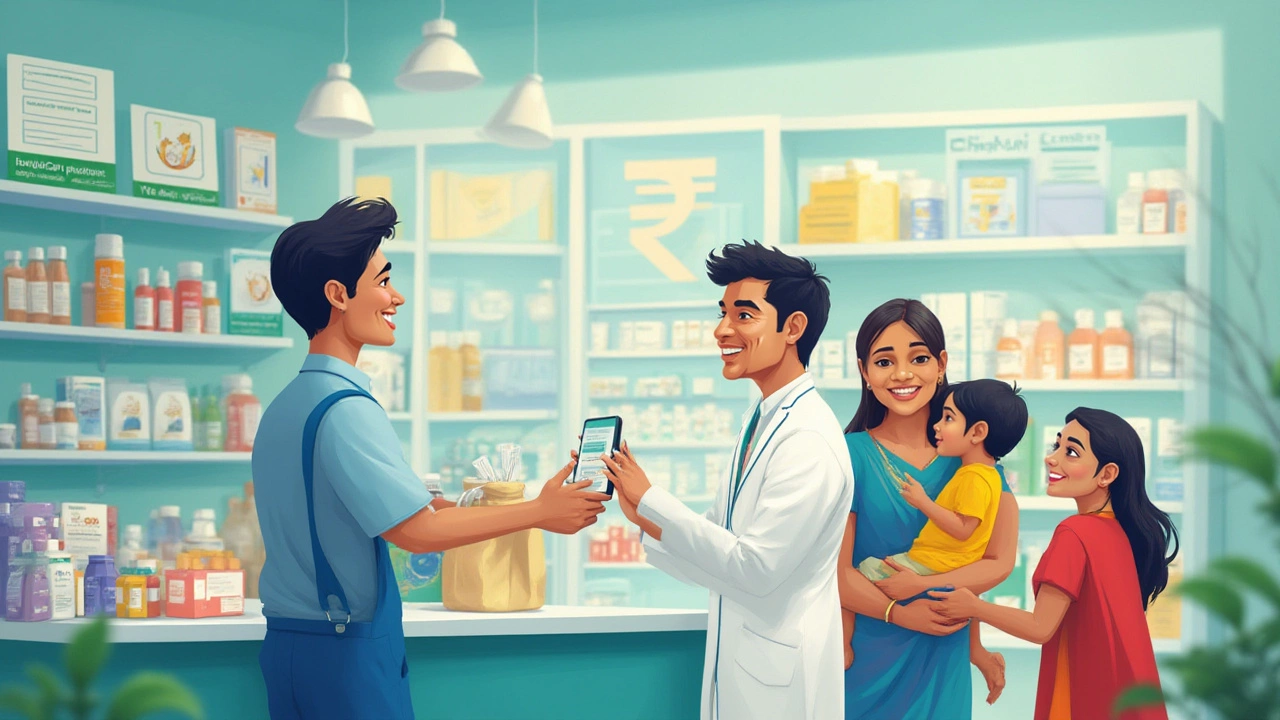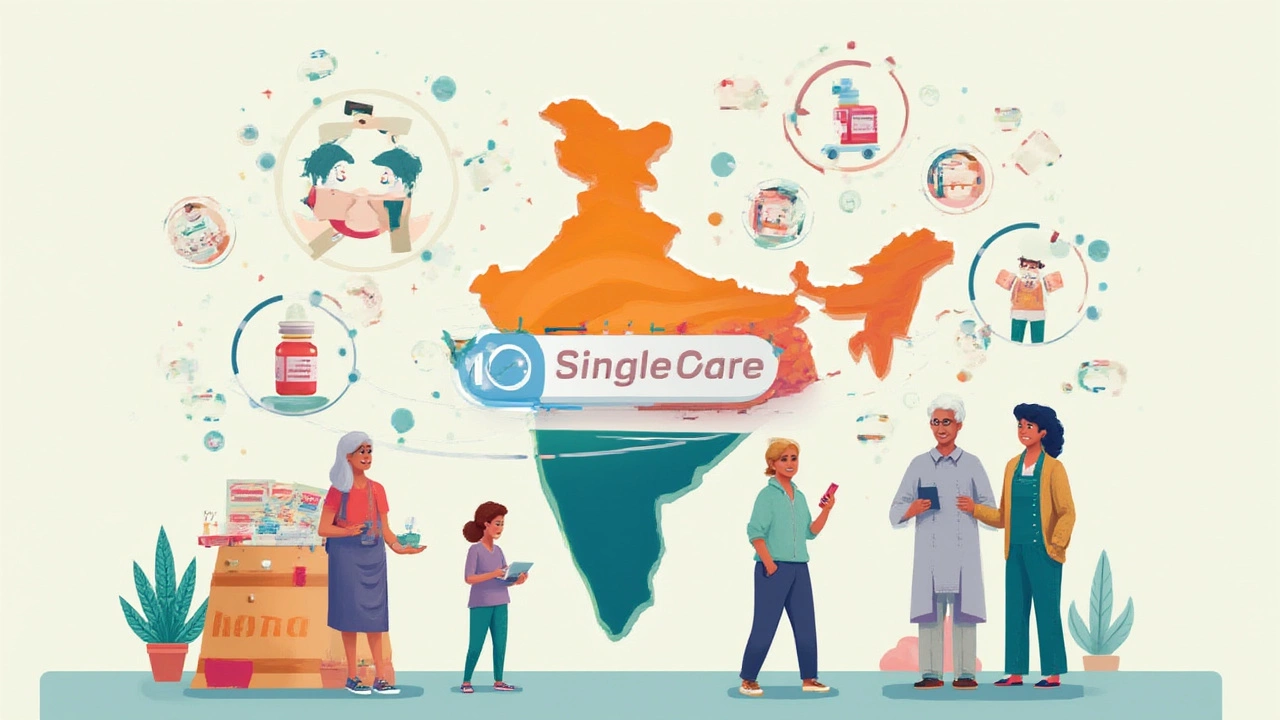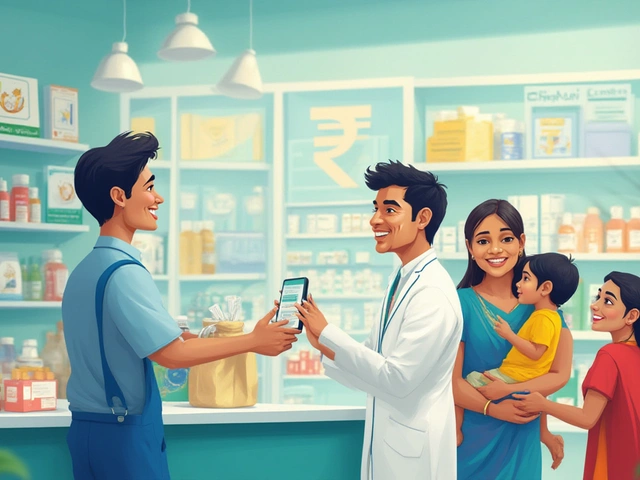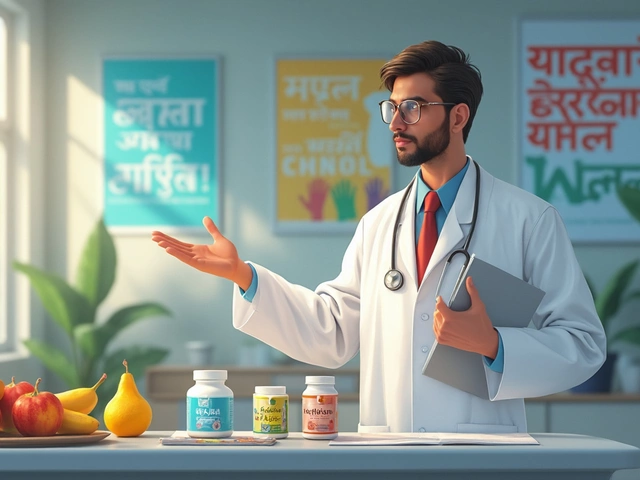
SingleCare Monthly Costs: How Much Should You Expect To Pay in 2025?
If you’re used to breathing in the siren scent of price hikes at the pharmacy (who isn’t?), you probably already know about discount cards like SingleCare. But hidden among Google searches and pharmacy counters, a question pops up all the time: how much does SingleCare actually cost every month? You might be ready for a wild number, a hidden fee, or one of those shady signups you regret at 2am. Reality? It’s got some surprises most people don’t see coming.
How SingleCare Works and What Sets It Apart
Let’s cut through the usual confusion first: SingleCare isn’t an insurance plan. You don’t sign up for coverage or hand over your health details. Instead, SingleCare is a free-to-use prescription savings program. That sounds almost too good, but stay with me. There’s no monthly membership fee at all. You can use SingleCare as often or as little as you want—no subscription, no commitment, and zero hidden charges. You download their app, grab a discount card from a local pharmacy, or print out a coupon online. It’s all open-access.
What grabs most people is that “free” part. If you’re thinking, ‘So where’s the catch, Arnav?’ here it is: SingleCare makes money from pharmacies when you use the discounts—they pay a tiny fee for every transaction. It costs you nothing, because their business isn’t aimed at moving money from your pocket. That means when you show your SingleCare card at the checkout, you only pay for your medication—no extra monthly or annual subscription. Want stats? According to SingleCare's published info as of early 2025, the average user saved over $200 per year on prescription costs, without paying a single penny to SingleCare itself.
Now, how does SingleCare do this? Simple answer: volume and negotiation. They work out deals with major pharmacies and pharmacy benefit managers, which helps them secure better prices for you. Pharmacies sign up to attract steady customers, even if they’re making a hair less per sale. You win, they win. Here’s a quick look at a real comparison from this year, across a few common medications at popular UK pharmacies:
| Medication | Average Retail Price (GBP) | Average SingleCare Price (GBP) | Average Savings (%) |
|---|---|---|---|
| Atorvastatin 20mg (30 tablets) | £10.80 | £6.30 | 42% |
| Metformin 500mg (60 tablets) | £14.20 | £7.90 | 44% |
| Lisinopril 10mg (30 tablets) | £11.90 | £5.10 | 57% |
Those aren’t over-the-top miracle discounts—but saving 40-60% over the counter? That stacks up. Especially for people who fall in the gap: maybe you’re between jobs, don’t have solid insurance, or just paying out of pocket for regular meds.
One tip—make sure the pharmacy you use actually participates with SingleCare. Most of the big chains in the UK and US are partnered, but it’s always good to check on the SingleCare app ahead of time. If you get handed a quote that seems off, quietly pull out your phone, run the numbers, and show the staff your coupon. You don’t need to get loud or feel awkward; pharmacists are used to it by now.

SingleCare’s Pricing Model: The Real Cost to You Each Month
The thing tripping most folks up is that nearly every prescription savings program has *some* sort of fee, right? SingleCare is an outlier. In 2025, there’s no monthly cost—period. No fine print where you commit your Direct Debit details. You don’t pay anything up front. It’s just not part of the business model. You’ll find plenty of sketchy competitors in this space with annual fees, even "trial periods" that sneak into real charges, but SingleCare sticks to a zero-cost structure. You only pay for whatever discount you use, and that’s it.
Here’s what else matters: SingleCare works for anyone, with or without health insurance. You don’t even need to make an account. The price you see on the app or coupon is exactly what you’ll pay at checkout (plus government taxes, if any). You’re not getting roped into a club or loyalty scheme. Want to use it one time and vanish? Cool. Want to come back each month? Equally fine. And yes, you can use SingleCare even if you’re on the NHS—sometimes prescription drugs that aren’t covered on the NHS list end up cheaper with SingleCare than paying the NHS flat co-payment.
Now, here’s a key tip from someone who’s actually used this for a family member last winter: prices change from pharmacy to pharmacy. Even with the discount, a medication might cost a few pounds more or less depending on the chemist you choose. Always shop around. SingleCare’s app lets you compare dozens of local options before you even leave the house. If you’re in London and you see a £5 difference between Boots and Lloyds, you have a choice—go with the best deal for you. It’s classic comparison shopping, but on the stuff that matters most.
Another fact: SingleCare can’t be combined with other discounts or coupons in most cases. You can’t stack a pharmacy’s own loyalty program discount with SingleCare. Pick whichever is cheaper. Sometimes the in-store sale is better than the app’s coupon, but usually SingleCare wins for generics. For brand-name drugs, savings are often smaller, but sometimes you’ll get lucky with a wild outlier. And if you’re wondering how it works for recurring monthly meds, there’s no catch. Use as needed, month after month, without ever seeing a bill from SingleCare.
If you’re someone traveling between the US and UK (thanks to remote work or just the chaos of modern life), SingleCare operates a little differently in these countries. In the US, SingleCare discounts are extensive—thousands of participating pharmacies, and not just the chains. In the UK, it’s slowly expanding, with more partnerships each month. By mid-2025, around 60% of high street pharmacies in big cities like London, Manchester, and Birmingham are in the program. Not bad for something that hasn’t been in the market long.
If all of this sounds like a pitch, trust me—I’m not shilling for SingleCare, I’m just a guy who loves a good loophole that isn’t a scam. There are no gold-plated memberships or extra perks for “premium users.” The only thing to watch out for? Expired coupons. Always double-check dates before heading to the till.

Top Tips for Maximizing Your SingleCare Savings
Alright, so you now know SingleCare won’t hit your wallet each month with fees. But let’s turn that up—how do you get the most out of it without missing a trick? The first step: use the app or website to check prices ahead of time. Don’t just trust the first quote, and don’t let a cashier brush you off if they’re unfamiliar with the program. Show the coupon barcode—every pharmacist can scan it or key in the code. If you get stuck, call SingleCare’s customer support from your phone then and there; they’ll walk the pharmacy through redeeming the coupon.
Here are a few more pointers:
- Always compare SingleCare’s price with what your NHS or private insurance would charge. Sometimes, the savings are huge, but not always.
- For medicines you refill monthly, set a calendar alert to check current discounts before heading out—prices shift with pharmacy partnerships and deals.
- If you’re managing prescriptions for family members, use the digital wallet feature on the SingleCare app, which lets you store multiple coupons and switch between them easily at checkout.
- Ask your GP to write your prescription for the generic form of a drug if possible. SingleCare discounts are strongest for generics—in some cases, name-brand discounts are only 10–15%, while generic equivalents can be 50–70% cheaper.
- If you travel, check which pharmacy chain works best with SingleCare—large outlets (Boots, Superdrug) are most likely to accept it, but regional chains join up frequently.
Here’s an interesting data point. In a recent survey by UK Prescription Watch (February 2025), 38% of adults aged 30–55 reported using a prescription savings card like SingleCare within the past year. Of those users, more than half were unaware they could swap pharmacies to maximize savings for each refill—just a bit of planning can unlock bigger discounts.
Not everyone thinks to ask a pharmacist outright about SingleCare—do it! If you’re in a chain that’s not on the app, ask if they’ve just joined or will soon. Pharmacies move fast to keep up with the competition, so what wasn’t true last month might now save you a tenner on your next visit.
One last tip: keep an eye on which meds get added to SingleCare’s discount list. Every few months, new drugs pop up with deep discounts. It pays to check the app after any medication change, and especially at year-end when deals shift as contracts renew. Don’t sleep on the dozen emails SingleCare sends you per month—they’re often spammy, but sometimes there’s a killer offer buried inside.
To sum up, SingleCare is a legit money-saver with a simple answer to the “how much does it cost a month?” headache. Zero monthly fee, no strings attached, just good old-fashioned price cuts when you need them. Pharmacy prices will always do their dance, but SingleCare’s approach is refreshingly no-nonsense—exactly what folks in London, and anywhere else, need right now.

Arnav Singh
I am a health expert with a focus on medicine-related topics in India. My work involves researching and writing articles that aim to inform and educate readers about health and wellness practices. I enjoy exploring the intersections of traditional and modern medicine and how they impact healthcare in the Indian context. Writing for various health magazines and platforms allows me to share my insights with a wider audience.
Popular Articles
About
Medical Resource Center India is a comprehensive online platform dedicated to providing reliable health information and medical resources in India. Explore a wide range of articles, tips, and advice on medicine, healthcare services, and wellness. Stay informed about the latest developments in Indian medicine and access valuable insights into maintaining a healthy lifestyle. Discover expert guidance and health solutions tailored for every Indian citizen. Your go-to destination for authoritative medical knowledge in India.




